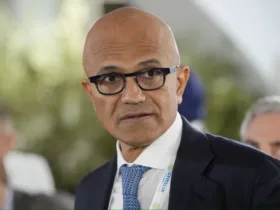China’s Willingness for Collaboration
In a significant diplomatic development, China has expressed its willingness to work collaboratively with India to enhance mutual trust and stabilize their often contentious bilateral relations. This announcement comes in anticipation of the 23rd round of the Special Representatives’ (SR) dialogue on the boundary issue, which will see Indian National Security Adviser Ajit Doval and Chinese Foreign Minister Wang Yi engage in high-level talks in Beijing on December 18, 2024. This meeting assumes immense importance as it revives a critical communication channel that had been dormant for four years, following the deadly border clashes in 2020.
For a detailed history of these discussions, explore our timeline of India-China talks.
Historical Context of the Dialogue
The Special Representatives’ dialogue was instituted in 2003 as a mechanism to address the complex and longstanding boundary dispute between India and China. The discussions aim to explore a mutually acceptable framework for resolving territorial differences while simultaneously working to ensure peace and tranquility in the disputed border areas. Over the years, these talks have served as a critical platform for managing bilateral tensions, though they have often been marred by a lack of tangible progress.
The dialogue’s resumption after a hiatus underscores the urgency of addressing unresolved issues that have strained relations between the two nations. The last round of SR talks took place before the violent Galwan Valley clashes in June 2020, which marked the most severe escalation between Indian and Chinese forces in decades, resulting in the deaths of 20 Indian soldiers and an unspecified number of Chinese troops. Read our analysis of the Galwan Valley clashes to understand its impact on bilateral relations.
Strategic Importance of the Talks
The timing of this meeting is significant, as it follows a recent agreement between Indian Prime Minister Narendra Modi and Chinese President Xi Jinping to improve communication channels and manage border disputes more effectively. This understanding was reached during their informal interactions at the Shanghai Cooperation Organisation (SCO) summit in Russia earlier this year. Both leaders emphasized the need to de-escalate tensions and restore normalcy in bilateral ties, directing their respective officials to work towards comprehensive disengagement along the LAC.
China’s Foreign Ministry has underscored the importance of the upcoming dialogue, with spokesperson Lin Jian stating, “China is ready to work with India to implement the important common understandings between the leaders of China and India, respect each other’s core interests and major concerns, strengthen mutual trust through dialogue and communication, properly settle differences with sincerity and good faith, and bring bilateral relations back to the track of stable and healthy development as soon as possible.” This conciliatory tone reflects Beijing’s intent to stabilize relations with New Delhi at a time when geopolitical complexities in the Indo-Pacific region are increasing.
Key Issues on the Agenda
- Border Management and LAC Stabilization: The primary focus of the talks will be on resolving the ongoing military standoff in Eastern Ladakh and achieving complete disengagement at all friction points along the LAC.
- Delimitation of the Boundary: The SR dialogue will aim to find common ground on boundary delimitation, a task that has remained elusive despite decades of negotiations.
- Trust-Building Measures: Both sides are expected to explore additional confidence-building measures (CBMs) to prevent future confrontations.
- Geopolitical Concerns and Regional Stability: The dialogue is also likely to address broader strategic issues, including their respective partnerships with other nations. Explore our deep dive into geopolitical strategies.
Challenges to Progress
Despite the positive rhetoric, several challenges could hinder substantive progress in the talks:
- Mutual Distrust: The Galwan Valley clashes and subsequent military standoff have deepened mistrust between the two sides.
- Domestic Pressures: Both governments face domestic political pressures that could limit their flexibility in negotiations.
- Complexity of the Boundary Dispute: The India-China boundary dispute is rooted in historical claims and counterclaims, making it a highly intricate issue.
Broader Implications
The outcome of the SR dialogue will have far-reaching implications for India-China relations and the broader regional dynamics. A successful engagement could pave the way for a gradual normalization of ties, enabling both nations to focus on shared economic and developmental priorities. Conversely, a failure to achieve meaningful progress could exacerbate tensions, pushing India and China further apart.
For further information, visit China’s Foreign Ministry or India’s Ministry of External Affairs. Additionally, explore our History of India-China Relations for a comprehensive overview.










